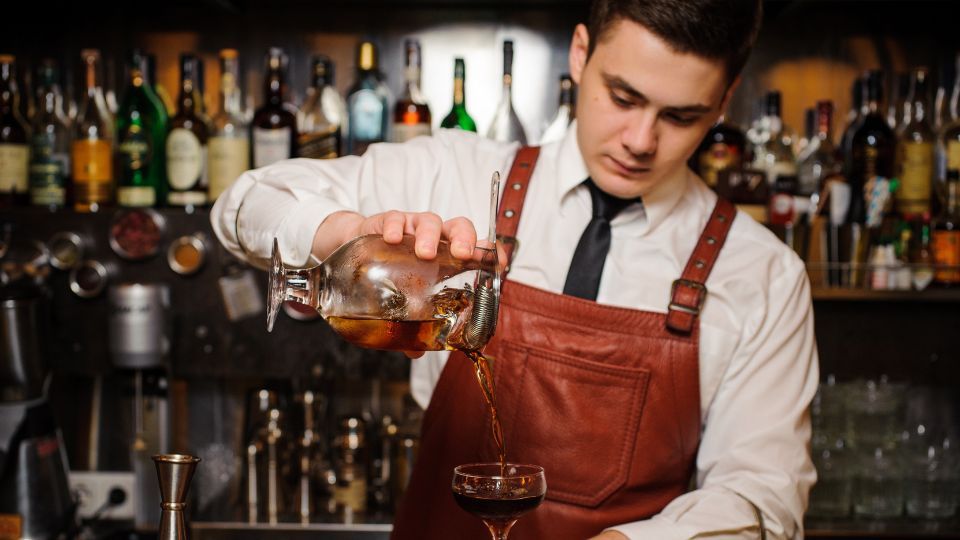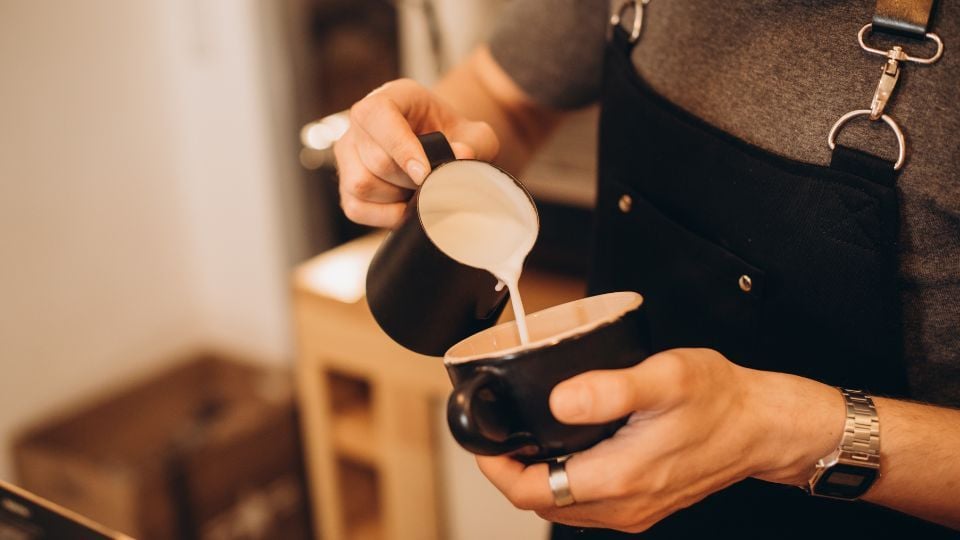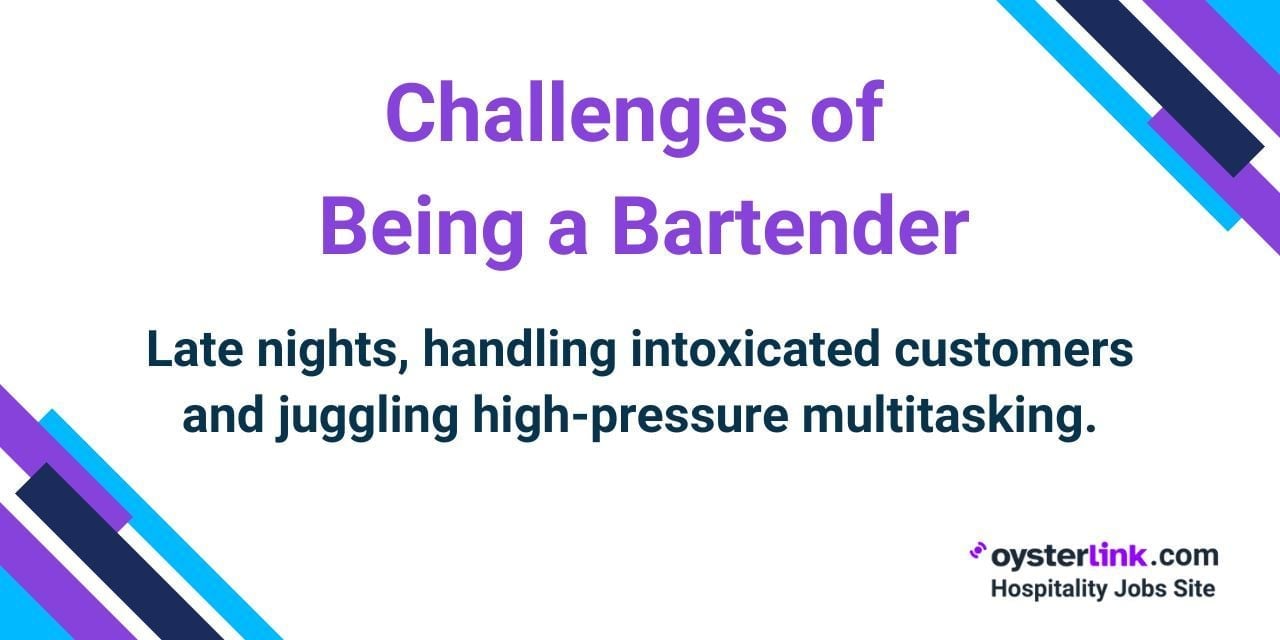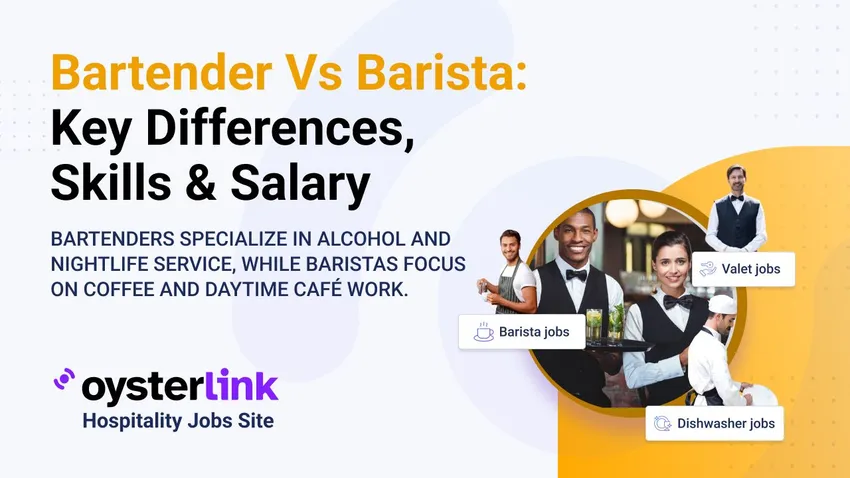If you enjoy working in lively environments, interacting with various people and crafting drinks, you might be considering a career as either a Bartender or a Barista.
Both roles center on beverages and customer service but differ in setting, skills and career paths.
This article explains the key differences between a Bartender and a Barista to help you choose the role that aligns with your goals.
Bartender vs Barista: Key Differences
A Bartender serves alcoholic and non-alcoholic drinks in bars, restaurants or nightclubs. In most states, bartending requires a certificate and meeting the legal drinking age.
A Barista, on the other hand, works in coffee shops preparing coffee and other non-alcoholic beverages. Baristas only need to meet the legal working age since they don’t serve alcohol.
If you want a quick visual explanation of Bartender vs Barista roles, this video highlights the key differences you should know.
Bartender vs Barista: Differences In Responsibilities
While the main responsibilities of Bartenders and Baristas are the same, there are quite a few differences in their overall duties.
Key Responsibilities of a Bartender

Bartenders prepare and serve alcoholic drinks at restaurants and bars. That said, they need to be comfortable with talking to many different people and handling payment transactions.
Moreover, they should be able to work on their feet for many hours.
Bartenders must know how to serve alcohol responsibly and how to deal with uncomfortable situations when these (eventually) arise.
Additionally, they have to know how to check and verify IDs so they don't serve alcohol to underage customers.
Besides these, Bartenders are responsible for keeping the bar clean and well-stocked.
Key Responsibilities of a Barista

Baristas serve coffee for the most part. As such, they need to be knowledgeable about the different coffee types available in their establishment.
Just like Bartenders, Baristas who work the counter need to be comfortable interacting with people throughout their entire shift.
They need to provide excellent customer service, which often helps them earn tips. They must also know how to handle cash and use point-of-sale systems.
A Barista should also take care of the coffee-making equipment. Espresso machines, for instance, need to be thoroughly cleaned before and after every brew to ensure every coffee is perfectly fresh.
Work Environment and Schedule: Bartender vs Barista
The work environments and schedules of Bartenders and Baristas differ significantly:
- Bartenders: Work in bars, restaurants or nightclubs, mostly evenings and late nights, including weekends and holidays.
- Baristas: Work in coffee shops or cafés, starting early mornings with daytime-focused schedules that typically end by early evening.
Key Skills for Bartender vs Barista Roles
As with almost any role in the service industry, Bartenders and Baristas need to have practical and interpersonal skills.
Skills a Bartender Should Have
A good Bartender should have knowledge of alcohol. They need to know which alcohols and juices mix well to craft cocktails. A great Bartender will also garnish cocktails to make them more presentable.
Organizational and multitasking skills are also a must. These skills allow Bartenders to work efficiently in fast-paced environments, accomplish multiple orders and manage bar inventory.
We talk about some of the other hard and soft skills for Bartenders here.
Skills a Barista Should Have
Baristas need to know different coffee types, brewing methods and how to use equipment like espresso machines, grinders and specialty brewers.
In some places, they also handle basic food prep. One advanced skill is latte art, which requires practice, precision and timing but often leads to more tips.
For more essential skills, watch this video.
Barista vs Bartender: Training and Certification Requirements
The training and certification requirements for Bartenders and Baristas vary:
- Bartenders: Often need certifications like a bartending license or alcohol server permit, covering responsible service and local liquor laws.
- Baristas: Certifications aren’t usually required, but training or coffee-related credentials can improve job prospects.
Career Challenges in Bartender vs Barista Roles
While both Bartenders and Baristas enjoy creative and social aspects of their jobs, each role comes with its own set of challenges that require adaptability, resilience and strong customer service skills.
Challenges of Being a Bartender

- Late, unpredictable hours: Bartenders often work nights, weekends and holidays, making work–life balance challenging.
- Managing intoxicated guests: They frequently handle impaired customers, requiring strong conflict-resolution and safety skills.
- High-pressure multitasking: Bartenders juggle multiple orders, guest interaction and bar upkeep, especially during busy shifts.
Challenges of Being a Barista

- Early, fast-paced shifts: Baristas often start before sunrise and face a heavy morning rush that demands speed and accuracy.
- Repetitive tasks & physical strain: Constant brewing, steaming and cleaning can cause wrist, shoulder and overall fatigue from long hours on their feet.
- High customer expectations: Complex drink requests and impatient guests are common, requiring patience and strong customer service skills.
Overlapping Skills in Bartender vs Barista Roles
Bartenders and Baristas work in different settings but share many skills. Both roles demand precision, creativity and strong customer service.
Recognizing these overlapping abilities makes it easier to transfer expertise between the two.
1. Drink crafting and precision
Both Baristas and Bartenders are skilled in making beverages with accuracy and consistency.
Just as a Barista perfects espresso extraction and milk frothing, a Bartender must balance cocktail ingredients precisely to create a well-mixed drink.
That said, both professions require a deep understanding of flavors, ratios and presentation.
2. Customer interaction and hospitality
In both roles, engaging with customers is a key part of the job.
Whether it’s recommending a specialty latte or crafting a signature cocktail, Bartenders and Baristas use strong interpersonal skills to enhance the customer experience, foster loyalty and create a welcoming atmosphere.
3. Multi-tasking in a fast-paced environment
Both professionals work in high-pressure situations where they must juggle multiple drink orders, manage equipment and maintain cleanliness — all while interacting with customers.
The ability to stay organized, work efficiently and keep composure under pressure is crucial in both jobs.
4. Understanding ingredients and customization
A deep knowledge of ingredients is essential for both Baristas and Bartenders.
Baristas understand different coffee beans, milk alternatives and syrups, while Bartenders are well-versed in spirits, mixers and garnishes.
Both roles also require the ability to modify drinks to suit customer preferences, such as adjusting sweetness, strength or texture.
5. Upselling and enhancing the guest experience
Both Baristas and Bartenders use suggestive selling techniques to boost sales.
A Barista might recommend a seasonal latte or a pastry pairing, while a Bartender may promote a top-shelf spirit or a house-made cocktail.
In both cases, strong product knowledge and enthusiasm can enhance the customer experience and increase revenue.
Salary and Earning Potential for a Bartender vs. a Barista
Earnings for Bartenders and Baristas can vary based on location, experience and type of establishment:
- Bartenders: Earn about $17.83/hour, with income heavily boosted by tips — especially in high-end or high-traffic venues.
- Baristas: Average $16.74/hour, with smaller tips, though many specialty shops and major chains offer steadier pay and benefits.
Below is a table showing further comparison of salary data for both roles.
| Role | Bartender | Barista |
| Average salary | $37,090 per year + tips | $34,825 per year + tips |
| Average wage | $17.83 per hour + tips | $16.74 per hour + tips |
| Three highest-paying areas | District of Columbia, Washington and New York | District of Columbia, Oregon and California |
Bartender vs. Barista: Conclusion
Bartenders typically work in venues serving alcohol. They must meet the legal age requirement and, in some states, the legal drinking age.
Baristas work in coffee shops serving coffee and non-alcoholic drinks. They only need to meet the legal employment age.
Coffee shops are busiest in the mornings, making the role better suited for early risers. Bars peak at night, so bartending often fits night owls.









Loading comments...